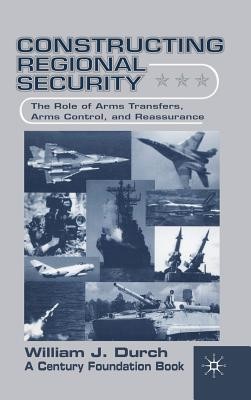
- We will send in 10–14 business days.
- Author: W Durch
- Publisher: Palgrave Macmillan
- ISBN-10: 031223645X
- ISBN-13: 9780312236458
- Format: 16.9 x 24.3 x 3 cm, hardcover
- Language: English
- SAVE -10% with code: EXTRA
Reviews
Description
In this book William Durch examines conventional weapons proliferation since World War II, the role of arms transfers in fueling regional conflict, and prospects for curbing the global arms trade. Noting that supply side arms control efforts, which seek to constrain the companies and countries that produce and distribute major conventional weapons, have a poor international track record, Durch argues for a broader approach that tries to get at the demand side of the equation. Addressing the political and regional dynamics that impel arms acquisitions, he looks at how arms control might be combined with confidence and security-building measures to contain demand, and how value-based arms trade control measures like 'codes of conduct' could be implemented in stepwise fashion consistent with US national interests in regional stability.
EXTRA 10 % discount with code: EXTRA
The promotion ends in 19d.05:57:11
The discount code is valid when purchasing from 10 €. Discounts do not stack.
- Author: W Durch
- Publisher: Palgrave Macmillan
- ISBN-10: 031223645X
- ISBN-13: 9780312236458
- Format: 16.9 x 24.3 x 3 cm, hardcover
- Language: English English
In this book William Durch examines conventional weapons proliferation since World War II, the role of arms transfers in fueling regional conflict, and prospects for curbing the global arms trade. Noting that supply side arms control efforts, which seek to constrain the companies and countries that produce and distribute major conventional weapons, have a poor international track record, Durch argues for a broader approach that tries to get at the demand side of the equation. Addressing the political and regional dynamics that impel arms acquisitions, he looks at how arms control might be combined with confidence and security-building measures to contain demand, and how value-based arms trade control measures like 'codes of conduct' could be implemented in stepwise fashion consistent with US national interests in regional stability.


Reviews